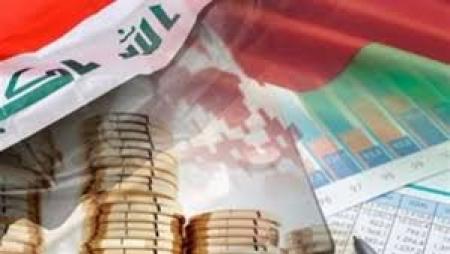An economist refutes the estimates of the international monetary… What about the balance between revenues and expenditures in the budget?
An economist refutes the estimates of the international monetary… What about the balance between revenues and expenditures in the budget?
2023-05-04
 Today, Thursday, May 4, 2023, economist Nabil Al-Marsoumi refuted the estimates of the International Monetary Fund regarding the 2023 tripartite budget. Among the necessary revenues, the budget achieves a balance between revenues and expenditures.
Today, Thursday, May 4, 2023, economist Nabil Al-Marsoumi refuted the estimates of the International Monetary Fund regarding the 2023 tripartite budget. Among the necessary revenues, the budget achieves a balance between revenues and expenditures.
Al-Marsoumi said in a blog post, “According to the International Monetary Fund, the budget parity price in 2023 in Iraq is $75.8 per barrel, and this figure is incorrect because it achieves oil revenues of only 126 trillion dinars for Iraq, while Iraq needs the price of a barrel of oil to reach 110 dollars in order to achieve oil revenues amounting to 182 trillion dinars, in addition to 17 trillion dinars in non-oil revenues, in order to achieve a balance between revenues and expenditures…with apologies to the fund experts.
* Budget figures
Prime Minister Muhammad Shia al-Sudani revealed at the budget conference previously, that “the share of the Kurdistan region in the budget amounts to 12.6, and the total budget amounted to 197 trillion and 828 billion dinars as follows: the operating budget amounts to more than 150 trillion dinars, the investment budget is more than 47 trillion, and the deficit In the budget, it amounts to 63 trillion dinars.
He explained that “total revenues amount to more than 134 trillion dinars,” stressing that “oil revenues amount to more than 117 trillion dinars based on the price of oil at $70, and non-oil revenues amount to more than 17 trillion dinars.”
In the field of numbers, Al-Sudani mentioned the following:
* The total budget is more than 197 trillion dinars
* The operating budget amounts to more than 150 trillion dinars
* The investment budget amounted to more than 47 trillion
* The budget deficit amounts to 63 trillion dinars
* Total revenues amount to more than 134 trillion dinars
* Oil revenues amount to more than 117 trillion dinars based on the oil price of $70
* Non-oil revenues amount to more than 17 trillion dinars
* The share of the Kurdistan region in the budget is 12.6 percent
* More than 12 trillion dinars of indebtedness will be repaid this year
* The petrodollar will be two trillion dinars distributed among the provinces
* The development of the regions in the budget will be 2.5 trillion dinars
* 400 billion dinars have been added to the loans of small projects in the Ministry of Labor
* Increasing the capital of the Industrial Bank by 400 billion dinars to support the private sector
* An increase in some allocations, including medicines, by an amount of 300 billion dinars, to become more than a trillion
* Allocating one trillion dinars for the Iraq Development Fund draft law
* Exporting 3.5 million barrels annually
During the current year, Iraq intends to export 3.5 million barrels annually, according to what was approved by the Sudanese government in its budget for the current year.
Iraq is the second largest oil producer in OPEC, and the country relies on revenues from selling crude to cover about 95% of its expenses.
The price of a barrel of oil is about $70 per barrel in the budget recently approved by the government, with total proposed expenditures amounting to 197.8 trillion dinars ($152.2 billion), according to Prime Minister Muhammad al-Sudani, who indicated that this budget will be repeated during the next two years as well.
The fiscal deficit amounts to 63 trillion dinars ($48.5 billion), according to the official government statement.
While Iraq is an oil exporter, it imports the main oil derivatives, such as gasoline, gas oil, and white oil. According to the “SOMO” company, more than 5 million tons of oil derivatives were imported last year, at a value of $5.3 billion, compared to 4.7 million tons, at a value of $3.3 billion, in 2021. Gasoline was the most imported, at a value of $3.8 billion, followed by gas oil with more from $1.2 billion.
Iraq’s financial budgets have witnessed a significant gradual rise since the US invasion of the country in 2003, but this did not contribute to improving the Iraqis’ living and service situation.
burathanews.com
